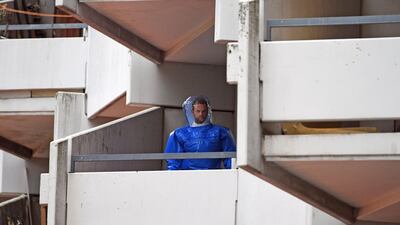German federal prosecutors have filed charges on Thursday against a Tunisian suspect and his German wife for producing biological weapons that were allegedly to be deployed for a terrorist attack in Germany.
Sief Allah H., 30, and Yasmin H., 43, are thought to have been followers of ISIS, whose last stronghold is currently being recaptured in Syria. The couple is accused of having bought thousands of castor beans and developed the toxin ricin to carry out an attack on a crowded public place in Germany.
They also used fireworks to build improvised explosives.
The arrest took place in 2018 in their Cologne apartment, where investigators found castor bean seeds and ricin along with bomb-making components.
The man had tried twice unsuccessfully to travel to Syria in 2017 to join ISIS.
Terrorists have been looking to weaponised chemicals including anthrax and ricin. Former British army officer, Hamish de Bretton-Gordon, told The National that "it is very difficult to 'weaponise' Anthrax but not impossible."
“The challenge is to ‘grind’ a spore small enough in order that it can be ingested by the human body,” he said.
The German prosecutors’ charges come as a string of mysterious letters containing potentially deadly toxins was intercepted in Tunisia this week.
So far 19 letters, addressed to prominent journalists, politicians and trade unionists, have been intercepted by police at the central Post Office in Tunis and taken for testing.
The country’s intelligence agency urged the public to be cautious around unexpected post.
Investigations into the source of the letters remains ongoing but the government suspects extremists.
"We knew that they are coming from a terrorist, or religious extremist groups, based upon our investigations," Interior Ministry spokesman Sofiane Zaag told The National.
The government has not yet been able to determine what the individual or group’s agenda might be.

